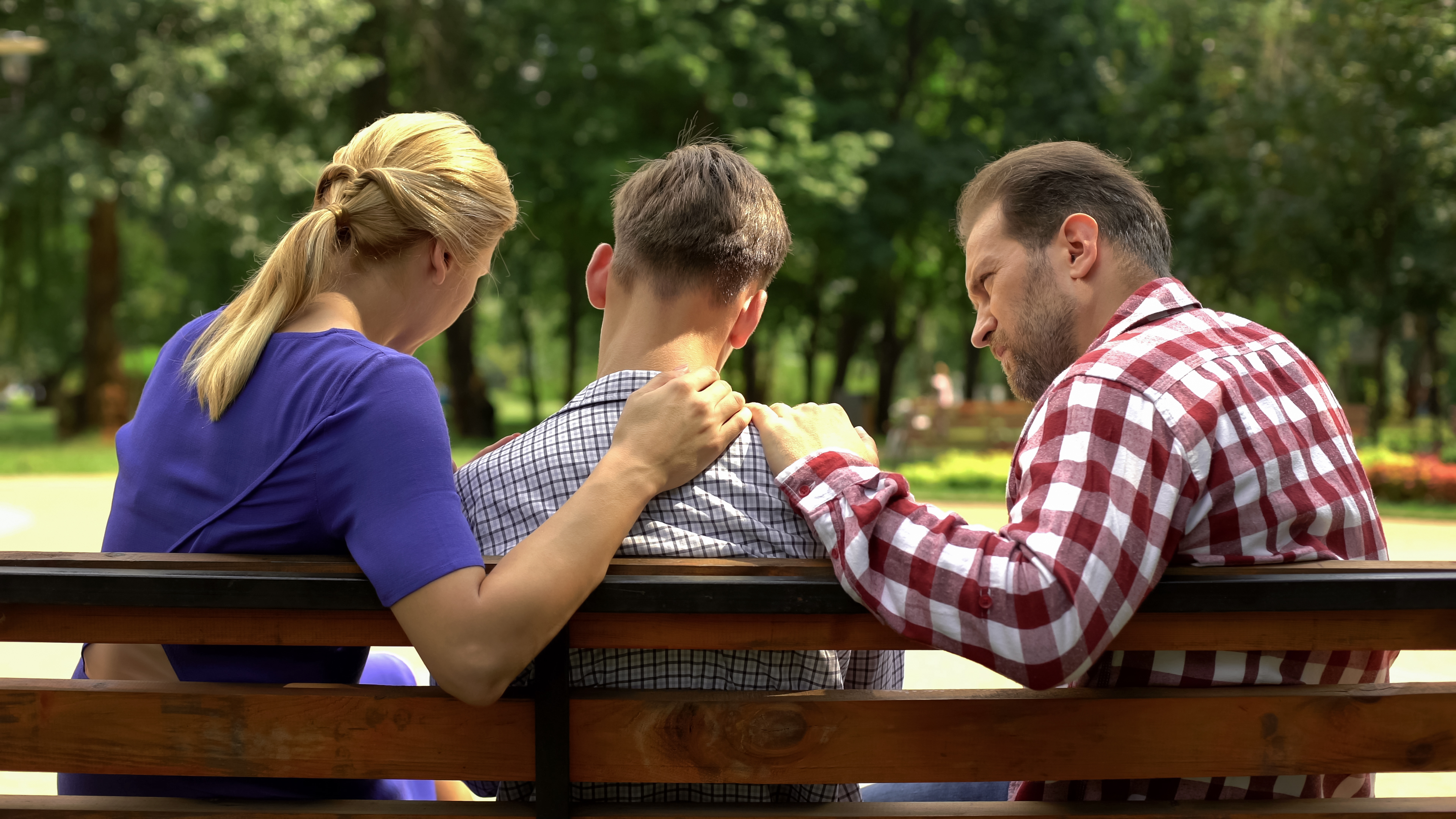


The loss of a person to suicide can be devastating, with the impact of their death affecting up to 135 people including close family members, loved ones, friends and colleagues.
This sensitive topic is something that we generally want to keep at a safe distance, but talking about suicide as a community helps to lessen stigma. One of the best ways we can help reduce the numbers of people who chose to end their lives in this way is by openly discussing suicide.
So, what does it mean to experience suicidal feelings? And how can we support those who are struggling?
Suicidal thoughts are relatively common, it’s estimated that one in five people will have thoughts of suicide in their lifetime. Suicide behaviour is much less common, and deaths are rarer still. Most people considering suicide do not actually want to end their lives – they simply want the pain to stop.
Anyone can experience suicidal feelings, regardless of their background or circumstances. They can take many forms and vary from person to person, and the reasons will be unique to them.
There is rarely only one cause, and the reasons can be very complex. Feelings can be a symptom of a mental health condition, a side effect of medication, or a response to some event or trauma. They can be triggered or worsened by substance use, sleep problems, and other factors. Some people can say why they feel suicidal, but in other instances there may not be a clear reason, or they may be unable to talk about what they are feeling or experiencing. They may be facing a situation that seems to them to be so difficult that ending their life is the way to solve it. The emotional pain may be so acute they see suicide as a way of bringing this to an end, or the pain they are in outweighs their coping strategies or resources.

Pictured: Guernsey Mind and other organisations are there to help.
But no matter what the reasons, suicidal feelings are overwhelming and frightening. If you are feeling suicidal, you might be scared or confused by these feelings. But please remember that thoughts and feelings can change in an instant and there is hope and support available, and people who can help.
It can be very hard to know for sure if someone is feeling suicidal. Many people find it very challenging to talk about suicidal feelings – this can be because they cannot find the words to use to explain how they are feeling. They might hide how they are feeling and convince friends and family that they are coping.
The most important thing you can do is be there for the people you care about, providing support without judgement. Allowing them to talk about their thoughts and feelings can help hugely and support them in seeking further support.
If someone you know is feeling suicidal or you think they might be, take their feelings seriously.
It is important to offer emotional support, like listening without judgment or helping them find places for help and advice, and practical help such as and reminding them to take their medication. Help them come up with their own self-care strategies and develop a support plan.
Asking someone if they feel suicidal or if they are planning to end their life may not feel like the right thing to do but in fact professionals do recommend asking direct questions about suicide. Some people worry that this might indirectly encourage the person who is feeling suicidal to act on their feelings, but in reality research has shown that speaking openly about suicide decreases the likelihood of the person acting on their feelings.
By asking someone directly about suicide, you give them permission to tell you how they feel, and let them know that they are not a burden. It can offer different perspectives, provide hope and possible routes for support. People who have felt suicidal will often say what a huge relief it was to be able to talk about what they were experiencing.

Pictured: Guernsey Mind offers support to people wanting to support others.
Having open and honest conversations is key. Ask direct questions, like "are you having suicidal thoughts?" or "have you felt like you want to end your life?" Let them know that it's safe to be honest with you, and that you're there to support them. Give them space to open up at their own pace, and take their feelings seriously. Avoid making assumptions or getting defensive - just be present and supportive.
It can be hard to accept that someone close to you feels suicidal.
You might feel helpless, powerless, angry, sad, shocked, frightened or a whole range of other emotions unique to your own experience - there's no right or wrong way to feel. Some people worry that they are to blame if someone else feels suicidal, or their loved one doesn't feel better, but it's important not to blame yourself for what is happening.
A support plan is a tool that outlines how someone wants to be supported in times of crisis. It might include things like coping strategies, important supportive contacts like friends, family and professionals, and emergency steps. Having a plan in place can provide a sense of security and control, and make it easier to get help when it's needed. You can help your loved one develop a support plan by having open conversations about what they find helpful and how you can best support them. You can find an example at www.samaritans.org and search for safety plan.
Supporting a loved one can be draining, so make sure you're getting the rest and support you need. It's important to take care of your own physical health and mental health, including getting enough sleep, eating regularly and doing things you enjoy or find relaxing. To be able to care for someone else, you need to take time for yourself too. You can find more tips about your own self-care at www.mind.org.uk and search for ‘supporting someone who feels suicidal’.
The Gower Sunrise Walk of Hope is an annual event organised by Guernsey Mind to raise awareness around suicide and to support Guernsey Mind’s ongoing work regarding suicide prevention and support.

It's a chance to come together as a community, honour those we've lost, and support those who are struggling. By participating in the walk, you can help make a difference in the lives of those affected by suicide. Visit www.guernseymind.org.gg to learn more and register today.
Remember:
If you are concerned you might harm yourself or someone else, contact A&E on 01481 220000 or the emergency services on 999
Talk to someone you trust who might be able to help
Contact your key worker if you have one. If you don’t know their direct number call 01481 220000
Contact the Samaritans either by their 24 hour free and confidential helpline on 116 123 or email jo@samaritans.org or visit the website http://www.samaritans.org
Contact your GP and explain that you require an urgent appointment
Guernsey Mind - Suicide First Aid Lite training - This 3.5 hour course will help you spot the early signs that someone may be struggling and build confidence to apply a ‘first aid approach’ to avoid a crisis and help someone with thoughts of suicide stay safe. Please contact info@guernseymind.org.gg for details of dates.
Comments
Comments on this story express the views of the commentator only, not Bailiwick Publishing. We are unable to guarantee the accuracy of any of those comments.